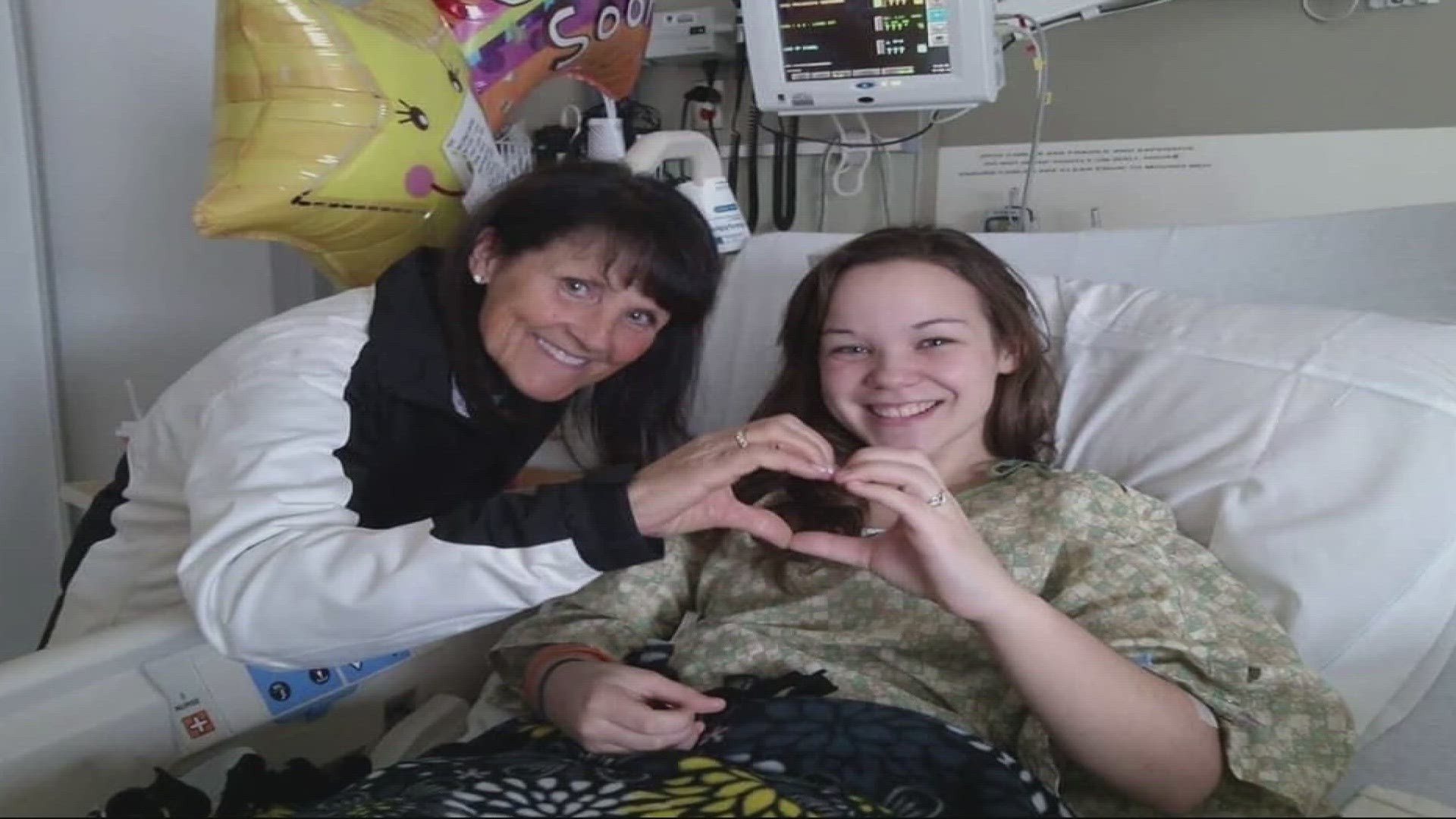PORTLAND, Ore. — After almost dying from cardiac arrest, an Oregon woman wants to make sure everyone knows the importance of taking care of their heart during February, or Heart Health Month.
At 18, Heidi Stewart was living as an active teen.
"I was involved in competitive swimming. It was a year-round sport, so I spent a lot of time at the pool. Outside of that, I was active at my high school (and) church," she recalled.
Then, at school one day, her life changed in an instant.
"My heart stopped for 10 minutes, and then I was revived by bystanders who knew how to use an AED and brought me back to life also through CPR," Stewart said.
Though Stewart had had health issues for years, no one could tell her what was wrong.
"I had been going through symptoms since I was 16 years old, and that predominantly included fainting before any sort of competitive race. However, no one could find anything," she said.
Turns out, Stewart had cardiac disease, and doctors say she's not alone.
"We talk about breast cancer and screenings which are important, but I want to bring it back home that heart disease is the number-one condition that we all have to keep at the front of mind," said Dr. Nicole Saint Clair, the executive medical director for Regence.
In fact, only 44% of women are aware that cardiovascular disease is the leading cause of death for women.
"A cardiac arrest ... that's so outside of what I thought would happen to me — and then, it did," Stewart said.
The issue is more troubling for women of color, according to Saint Clair.
"The barriers are two-fold and has to do with access and making sure that once you've got to the care itself, making sure you get the right evaluation and information," Saint Clair said, adding that more studies need to be done involving women and people of color.
Stewart said she's a survivor and is thankful someone knew what to do to help her years ago. Now, she wants to make sure all women know how to protect their hearts.
"I really remember waking up in the hospital and thinking, 'I want to spend the rest of my life working to make sure this doesn't happen to anyone else like it did for me and my family,'" she said.

